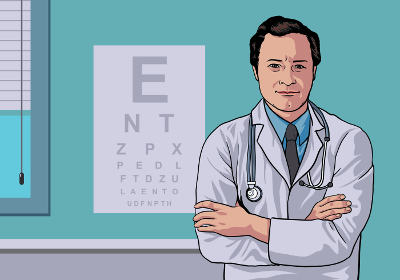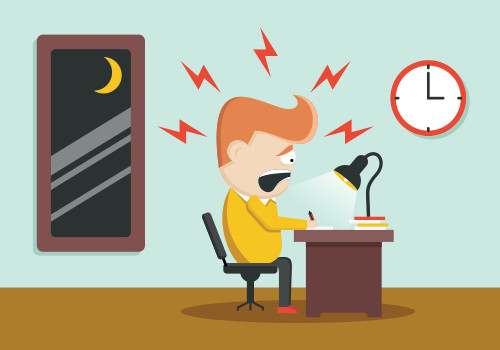
Illness always seems to hit workers at inopportune times. Usually, when an employee or family member gets sick, feelings of vulnerability set in as concerns arise over finances, health, and the prospect of continued employment. Questions pop up like: “can I take a medical leave of absence?” “is it paid or unpaid?” “can my boss fire me?” If you don’t know what you are doing, then one stupid move could easily cost you your entire career.
Fortunately, To protect employees from being terminated or retaliated against, federal and state legislatures have passed nearly identical labor laws protecting employee’s right to leave.
These laws (which often run concurrently) are the FMLA (or Federal Family and Medical Leave Act, passed in 1993) and its counterpart, the California Family Rights Act (enacted in 1991, the equivalent of FMLA in California). You’re about to learn all about them.
This guide will offer a general explanation of the safeguards that both laws provide and the financial remedies that are available to employees from employers who violate the law.
Table of Contents:
What Protections Do Employees Get?

As an employee, you are entitled to up to twelve work weeks (60 working days) per twelve month period of unpaid leave for a qualified reason. What this means is that your employer may not terminate you from employment while you are on leave.
Further, it means you have job protection, right to reinstatement (you have the right to return to the same or equivalent position) (29 CFR §825.214; 2 Cal Code Regs §11089), and it also ensures that your medical benefits continue and are paid for by your employer while you are out. (29 CFR §825.209(a); 2 Cal Code Regs §11092(c)).
Both laws also provide anti-retaliation provisions that bar employers from retaliating against employees for requesting or taking leaves of absences. As previously mentioned, in the majority of circumstances, leave may not exceed a total of 12 work weeks in a 12 month leave year. There are exceptions, however (more on this below).
Will I Get Paid While I Am On Leave?
No, in California FMLA and CFRA leave is unpaid. You can, however, receive compensation while on leave by substituting in your accrued vacation or sick leave, taking leave under some other employer-paid family leave policy or disability leave plan (if your employer provides it), or qualifying for wage replacement under California state disability insurance, or paid family leave program.
What Are The Requirements?
Necessary Qualifications:
First, you must qualify (29 USC §2612(a)(1); Govt C §12945.2(c)(3)), which means you must be taking the leave for one or more of the following reasons:
- You (the employee) have a serious health condition that makes you unable to perform one or more of the essential functions of your position (Note: CFRA’s definition of “serious health condition specifically excludes disability caused by pregnancy, childbirth or related medical conditions);
- (CFRA only) To care for your spouse, son, daughter, parent, or registered domestic partner, if such individual has a serious health condition;
- The birth of your son or daughter and to take care of your son or daughter following birth (usually referred to as baby-bonding leave);
- You have recently welcomed a son or daughter through adoption or foster care;
- (FMLA only) For prenatal care, pregnancy-related illnesses, and childbirth;
- (FMLA only) You have a qualifying exigency arising out of the fact that your family member is on covered active duty in the armed forces, or has been notified of an impending call or order to covered active duty; or
- (FMLA only) If you are the spouse, child, parent, or next of kin of the military member, to care for a covered military member with a serious injury or illness.
Eligibility:
Second, you must be eligible (29 CFR §825.110(a); 2 Cal Code Regs §11087(e)), this means you:
- Must have worked for your employer for at least one year before the start date of your leave;
- Must have worked for your employer for at least 1250 hours during the twelve months immediately before the start of your leave; and
- Must be employed at a worksite where your employer employs fifty or more employees within a seventy-five-mile range of that worksite (definition of “employees” includes people that are part-time or are currently on leave). *This CFRA rule was amended as of January 1, 2018, and now only requires at least 20 employees within 75-mile radius for bonding time.
Coverage:
Third, the laws must cover your employer. To be covered, the employer must have at least 50 employees for each working day during each of the twenty or more calendar workweeks in the current or preceding calendar year.
Full time and part time employees appearing on the payroll for a particular week count towards the threshold. Also, employees on paid and unpaid leave or disciplinary suspensions also count.
29 USC §2611(4)(A)(i); Govt C §12945.2(c)(2).
What Is A Serious Health Condition?

It is an illness, injury (including a workplace injury), impairment, or physical or mental condition that involves either: inpatient care (hospital, hospice, residential medical care facility) or continuing treatment by a healthcare provider.
Usually, unless there are complications, minor ailments such as the flu, common cold, earaches, headaches, small ulcers, stomach flu, and routine dental problems, are not “serious health conditions.” (29 CFR §825.113(d)).
On the other hand, the flu has been considered a “serious health condition” in circumstances where the legal definition is met, such as in situations where there is incapacity of more than three days and at least one visit to the doctor for treatment. (Miller v AT&T Corp. (4th Cir 2001) 250 F3d 820, 832). Mental illness and allergies may be considered “serious health conditions.” (29 CFR §825.113(d)).
Alcohol & Substance Abuse:
Absenteeism due to an employee’s substance abuse or intoxication doesn’t qualify for FMLA leave. But if it is the result of what is considered a “serious health condition” then Family and Medical Leave Act leave may be taken for treatment by a health care provider or in a health care facility referred to by a healthcare provider. It is also the case that an employer may be required to provide leave under the CFRA for drug or alcohol rehabilitation if the addiction is considered a “serious health condition” under the law. Under California Labor Code section 1025 private employers that have 25 or more employees must reasonably accommodate employees voluntarily entering alcohol or drug rehabilitation programs, so long as the reasonable accommodation is not an undue hardship on the employer.
How Do I Make A Request?

Your employer needs to be aware of your need for leave to trigger the necessary protections of federal and state law. You should provide notice at least thirty days in advance of the leave when the necessity is reasonably foreseeable.
If it is not reasonably foreseeable, notice should be provided “as soon as practicable” under the facts and circumstances. (29 CFR §825.303(a); see 2 Cal Code Regs §11091(a)(3)). Refer to your employer’s policy regarding the manner of communication, and the means of making the request.
TIP: When possible, you should do the following:
- 1. Submit a doctor’s note or work status report (there is no requirement that you use a specific form).
- 2. Get the information to your employer in writing: ideally, an email, facsimile, certified mail, or take the note directly to HR (keep a copy for your records) and maintain a paper trail so that the company cannot later deny receiving it. If delivery is being made in person, make sure to bring a second copy for the human resources department to stamp or sign acknowledging receipt. Why? One of the most common defenses employers use is that the employee failed to provide the required notice of the need for leave. Just do whatever it takes so the record is clear.
- 3. Just because you are on workers comp doesn’t mean that you do not have to provide medical notes and make a request. Often doctors provide medical records to the insurance adjuster handling your claim. There is no guarantee that the insurance adjuster has provided the information to your employer.
Can My Employer Require Medical Certification?

Your employer can either take you at your word or require that you provide medical certification from a health care provider substantiating your need for leave. If your employer decides that you must provide certification, then it must provide notice of the requirement must be in writing at the time of the request, and it must state what the consequences are for failing to provide the certification (otherwise it is foreclosed from taking adverse action). (29 CFR §825.305(d); 2 Cal Code Regs §11091(b)(3).)
Under federal law, you must provide the certification within 15 days of the request by your employer. Under state law, your employer may require that you provide medical certification no less than 15 calendar days after the request. (2 Cal Code Regs §11091(b)(3).) Failure to provide certification may be excused when it is not practicable under the circumstances despite good faith efforts. Extenuating circumstances may also be sufficient to excuse a missed deadline for providing certification.
What does the medical note need to state?

To sufficiently trigger leave protections, the certification must state:
1.) The doctor’s name, address, telephone number, fax, number, medical practice or specialization,
2.) The approximate date the medical condition started,
3.) The probable duration, and
4.) That the patient is unable to perform the essential functions of the job due to the serious health condition.
Doctors’ offices are very slow and processing paperwork, and sometimes the employer will request that employees use their forms which can span numerous pages. Doctor’s do not need to fill out any specific form. Instead, they only need to provide a medical note that contains the four necessary criteria discussed above.
Warning: Employers CANNOT inquire about the symptoms or the underlying diagnosis, nor can they request that you provide medical records under California law.
What if the medical certification is incomplete?
If the medical certification is incomplete, meaning mandatory entries are missing, or the information provided is vague, ambiguous, unresponsive, then your employer must notify you in writing that it is incomplete/insufficient and to state the additional information that is required to fix it. Your employer must provide you with at least seven calendar days to cure these defects.
Can Additional Opinions Be Requested?
Your employer has a right to send you to another doctor to get another opinion regarding the medical condition at the expense of the company. If the first and second opinion conflict, it can request a third opinion from another doctor that will be binding. Your employer can also require a fitness for duty as a condition of your return to work.
Can I Extend My Leave Once My Twelve Weeks Are Up?
Serious Health Conditions: Once the 12 weeks have expired you can get more leave as a reasonable accommodation under California Fair Employment and Housing Act or the Federal Americans with Disabilities Act. Under such a scenario you will not have job protection, but you will still be protected from retaliation/discrimination.
Injured Family Members on Active Duty: Eligible employees can take up to twenty-six weeks of leave under the FMLA in a 12-month period, to care for a family member that was injured while on active duty in the United States Armed Forces.
Pregnancy: A birth parent can take leave under the Family and Medical Leave Act (runs concurrently with California’s Pregnancy Disability Leave Law) for twelve weeks and then may take an additional twelve weeks to bond with her newborn baby under the CFRA. Check out our California maternity leave guide for more detailed information.
Can I Take Intermittent Leave?

In most circumstances, an employee may take leave on an intermittent basis so long as it is “medically necessary.” (29 CFR §825.202(b); 2 Cal Code Regs §11090(e).) There is no requirement that it be taken in one continuous block. For example, it can be taken in separate blocks or as a reduced work schedule (i.e., full time to part time) as long as there is a single qualifying reason (such as planned medical treatment). The employee must make a “reasonable effort to schedule the treatment so as not to disrupt unduly the employer’s operations.”
Do I have a right to return to work when my leave ends?
Yes, you have a right to be restored or reinstated to the same, equivalent, or comparable position. In fact, you have a right to reinstatement even if you were replaced, or your position was restricted to accommodate your absence while on leave.
What if I cannot be reinstated to the same position?
If you cannot be reinstated to the same position you had before the leave (i.e., maybe the position has been eliminated entirely), you are entitled to an equivalent position which is:
1.) Virtually Identical – same perks, privileges, and status as the previous position. This means the same:
- Pay: same or equivalent pay premiums (i.e., same shift differentials, the same amount of overtime hours), same unconditional pay increases, same discretionary and non-discretionary bonuses unless they are tied in with the achievement of a goal;
- Shifts & Schedule: Ordinarily entitled to return from leave to same shift or same or an equivalent schedule;
- Location: Must be geographically proximate work site (no significant commuting in time or distance) from where you previously worked;Employee benefits: same or equivalent benefits (i.e., health insurance, group life insurance, vacation, disability insurance, sick leave, annual leave, educational, and pensions) as before leave, unless entire workforce has had benefits changed while you were on leave, and
2.) “Same or Substantially Similar” – with regards to duties, responsibilities, skill effort, responsibility, authority.
Is My Employer Required To Post My Rights?

Yes, covered employers must post your leave rights and information about filing complaints when there are violations. According to the regulations, the notice is required to be posted “in conspicuous places … where notices to employees and applicants for employment are customarily posted” and should be posted “where it can be readily seen by employees.” Failure to post can mean a $100 civil penalty assessed for every separate violation by the U.S. Department of Labor.
Your employer must also notify you by either: 1.) providing details of benefits and leave rights in written materials or the employee handbook, or 2.) distribute a copy of the notice to each new employee upon hiring. Failure to provide required notice may be considered an “interference with, restraint of, or denial of [the] exercise of” an employee’s right to leave.
Can I waive my right to leave?
No, an employee cannot waive, and an employer cannot encourage an employee to waive his or her rights under the law. 29 CFR §825.220(d); 2 Cal Code Regs §11094(c). By way of example, you cannot trade your right to leave with some other benefit (such as extra pay.)
Can my Group Health Insurance Be Cut Off?
No, your employer must maintain your group health insurance coverage while on leave at the same level and on the same conditions as when you were working. If your health insurance coverage included your family members, then your employer would also have to maintain insurance for them as well while on leave. In the same vein, any dental or vision insurance would also continue to be maintained.
What is considered retaliation?
Retaliating can take place before, during, and after a leave of absence, and it can exist in many forms. Some examples include but are not limited to:
- Using and counting absences against an employee when they are taking intermittent leave.
- Terminating an employee when they are on leave.
- Not putting the employee back in the same job.
- Being treated different, given different job duties, any adverse treatment. Often an employee will be written up.
What remedies am I entitled to for violations?
1. Lost wages and benefits- both back pay and front pay.
2. Emotional distress, pain, and suffering.
3. Punitive damages,
4. Attorneys fees and costs.
Got a Lawyer?
Don't let your employer illegally bully you out of your leave of absence. Contact us to get a free consultation.
Should I Hire An Employment Lawyer To Handle My Case?
Although you can pursue a claim against your employer without an attorney, it can be very complex. Hiring an employment lawyer can make the process much simpler, and your lawyer can determine if you have other claims as well.
What Documents Should I Gather Before Contacting a Lawyer?
In cases involving violation of FMLA in California the following documents can either make you or break you, and therefore should be gathered before bringing a claim (documents involving trade secrets or other confidential information should be avoided):
- Employee handbooks and policies;
- Any disciplinary notices received;
- wage statements (pay stubs) received;
- Employment agreements/Offer letters;
- Collective bargaining agreements if you are part of a union;
- Arbitration agreements;
- Written correspondence and other notices (including e-mails, text messages, sticky notes, etc.) relating to your request for leave;
- Doctor’s notes & work status reports, and other certifications sent to your employer supporting your request.


